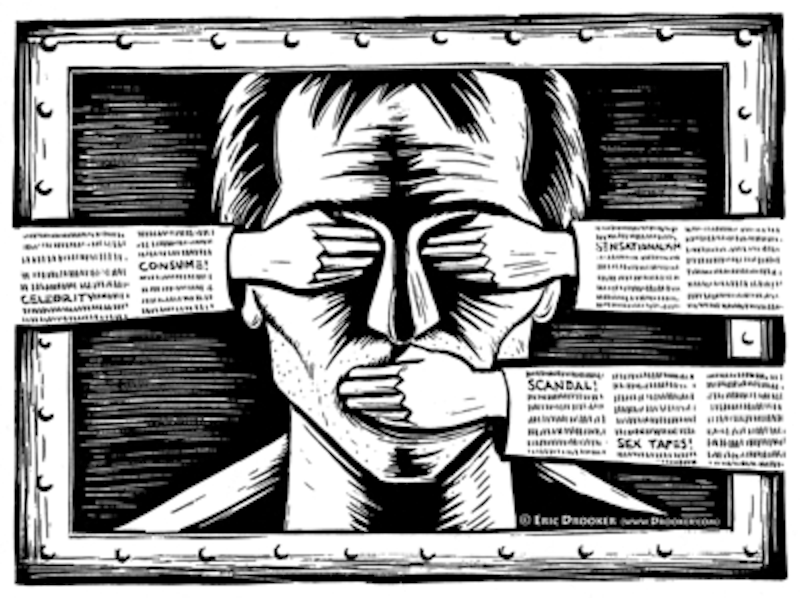The trick to writing educational materials is not in the writing. Nor is it in the education. Rather, it's in the ability to create test questions, or textbook explanations, that excise all pertinent information while still being composed of things that look like words.
As a creator of educational materials, here are some things that I have, at one point or another, been instructed not to talk about. Death, violence, war, animals in danger, magic, Negroes, slavery, sex, love, gambling, suicide, angst, sadness. Evolution, of course. Creationism. Homosexuality. In fact, a colleague of mine who was working on a discussion of the Holocaust for a textbook was told that she wasn’t allowed to mention that the Nazis had targeted gay people.
My colleague was horrified—I think she even cried. But I doubt she was especially surprised. Siding with the Nazis to erase gay people may be a particularly heinous example of our educational system at work, but while it is extreme, it's not really different in kind from what happens on a day-to-day basis. Educational writing is systematically biased against controversy—or, indeed, content—of any kind. The imperative to boredom is both intense and overwhelming. Diane Ravitch, in her 2003 book The Language Police, explains how a test passage she selected about a blind man hiking was rejected by a bias and sensitivity panel because it suggested that blind people occasionally faced disadvantages in comparison to sighted people… and also because it was about mountain climbing, and so unfairly favored students in places where there were mountains.
Ravitch's book blames the testing industry, and especially left and right political correctness run amok. But I think that's an overly optimistic assessment. Consider that earlier this year, there was an outcry over a story which appeared on the New York state exams. The story, by author Daniel Pinkwater, involves a race between a hare and a pineapple, and is the sort of whimsically silly narrative that has delighted kids and fans of the nonsensical since well before Alice went down the rabbit hole. Yet, the NPR post about the controversy quotes various editorialists and school officials expressing outrage and befuddlement. The comments section, too, is given over to bitter jeremiads and gnashing of teeth. That's not really a moral! one person shouts. The nominative is being used incorrectly! another fulminates. Silliness? Stomp it out! chorus the rest.
To be fair, the questions appended to the story are pretty dumb… and the examiners appear to have changed the story itself for the worse. But, again, much of the outcry was aimed not so much at the inconsistencies, but at the fact that the story was goofy, and surprising, and/or wasn't serious. In other words, the passage is seen as unacceptable because it's unexpected and challenging, which is, one would think, what you would ideally like your reading material to be.
But that isn't, in fact, what we want our reading to be, nor is it what we want educational establishment to do. And when I say "we" I mean the country as a whole. It's not just some PC nutcases, or the test creators who are at fault. The test creators do what they're paid to do, and what they're paid to do is to erase homosexuals, mountains, blind people, and pineapples in the pursuit of an education untrammeled by controversy, excitement, or imagination of any kind.
Maybe it's all the fault of our Puritan forefathers; maybe it's because of our uniquely Balkanized multi-tiered governmental system; maybe we just suck. But whatever the reason, the result is clear. Americans are deathly afraid that their kids might learn something—anything—at school. Driven by this terror, we pay our educators to do everything they can to seamlessly insert knowledge— of reading or history—without ever accidentally changing or challenging or surprising or entertaining our precious blank-faced child-bots. Our schools and our textbooks fail, in other words, not despite our best efforts, but because of them. It's hard to create a great school system when you hate education. You can set up charter schools, bust unions, and do testing until your face is as red as your pen. But as long as we tell our teachers and our textbook writers to focus on what they can't teach kids rather than on what they can, our schools will continue to be what they have long been: temples of not learning.
Noah Berlatsky (@hoodedu) blogs at Hooded Utilitarian.

